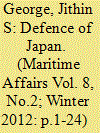| Srl | Item |
| 1 |
ID:
120655


|
|
|
|
|
| Publication |
2013.
|
| Summary/Abstract |
Deliberate and unintentional radio transmissions from Earth propagate into space. These transmissions could be detected by extraterrestrial watchers over interstellar distances. This article analyzes the harm and benefits of deliberate and unintentional transmissions relevant to Earth and humanity. Comparing the magnitude of deliberate radio broadcasts intended for messaging to extraterrestrial intelligence (METI) with the background radio spectrum of Earth, we find that METI attempts to date have much lower detectability than emissions from current radio communication technologies on Earth. METI broadcasts are usually transient and several orders of magnitude less powerful than other terrestrial sources, such as astronomical and military radars, which provide the strongest detectable signals. The benefits of radio communication on Earth most probably outweigh the potential harm of detection by extraterrestrial watchers; however, the uncertainty regarding the outcome of contact with extraterrestrial beings creates difficulty in assessing whether or not to engage in long-term and large-scale METI.
|
|
|
|
|
|
|
|
|
|
|
|
|
|
|
|
| 2 |
ID:
117145


|
|
|
|
|
| Publication |
2012.
|
| Summary/Abstract |
Security and defence issues in Japan are still considered to be a topic which induces debate and controversies. Defence forces and actors are submerged under myriad layers of civilian control; as a result the voice of military is often muzzled. Since the 1990s, the levers of control are shifting, muted military expressions are becoming clear, and the civilian administration too understands the need for a realistic outlook on security matters. This change does not insinuate that Japan is going back to remilitarisation way of the 1930s. Bequeathed with robust democratic structures since World War II, Japanese defence decision-making follows a certain pattern and trend. Many studies in English have examined Japan's economic, trade, and security policies, while Japan's defence decision-making has not been analysed. In recognising this neglect, this study focuses on the defence decision-making process from the decision-makers points of view. This study will aim to clear some doubts over the Japanese decision-making process opaqueness.
|
|
|
|
|
|
|
|
|
|
|
|
|
|
|
|